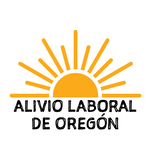CAPECO offers a variety of services and programs to help individuals and families with housing issues.
Housing assistance, through CAPECO, is dependent upon local, state and federal grants, foundations and donations. Availability of programs varies based on eligibility and funding sources.
Those in need of housing assistance are encouraged to contact us and talk with our staff regarding their needs.
Assistance is sometimes able to be given to prevent homelessness for those with eviction notices, assistance on past due rent, or funding to end a homeless situation.
Housing assistance, through CAPECO, is dependent upon local, state and federal grants, foundations and donations. Availability of programs varies based on eligibility and funding sources.
Those in need of housing assistance are encouraged to contact us and talk with our staff regarding their needs.
Assistance is sometimes able to be given to prevent homelessness for those with eviction notices, assistance on past due rent, or funding to end a homeless situation.
Service & Programs
- Coordinated Entry System*
- Navigators (Partnership Program with DHS)
- CAPECO Eviction Prevention Program (CEPP)
- Rent Well
- Rental Assistance
- Temporary Emergency Shelter (Promise Inn)
- Veterans Services - Supportive Services for Veteran Families
|
*Households seeking Rent Assistance
Beginning July 1, 2018 Households seeking assistance will be asked to contact CAPECO by phone or in-person to complete an assessment for Coordinated Entry. CAPECO is the HUB for Coordinated Entry for Umatilla, Morrow, Gilliam and Wheeler Counties. Completing the assessment does not mean housing assistance is available right now, however; it provides a way to determine the right level of services to housing resources to those facing a housing crisis. Assessments will provided by CAPECO staff by appointment. If someone is:
Please refer them to one of our CAPECO offices. |
Information & Resources
Education Workshops & Counseling
For Homeowners and those who would like to be
General Assistance Program
The General Assistance (GA) Program is a program administrated by DHS's Aging and People with Disabilities designed to help individuals with severe disabilities who are experiencing homelessness or who are at risk of homelessness.
For information on how to apply, click here |
Major Disaster - FEMA Funds
On April 3, 2020 the President declared communities in CAPECO's service area a Major Disaster which triggers the release of Federal Funds to people impacted by the Flood of 2020.
CAPECO does not disperse FEMA dollars. Affected households must register with FEMA directly. The link is provided here for your convenience: www.DisasterAssistance.gov |
Oregon Worker Relief FundThe Oregon Worker Relief Fund provides temporary disaster relief to Oregonians with financial need and who are excluded from the federal unemployment insurance program due to their immigration status.
For information on how to apply click here. en español - clic aquí |
Housing Authority
Gilliam, Morrow, Umatilla, Wheeler counties (www.umatillacountyhousing.org)
The local Housing Authority provides low income subsidized and affordable housing. They administer USDA Rural Development/HUD and Tax Credit Housing and Housing Choice Vouchers (Section 8). 155 SW 10th Street Hermiston, OR 97838 541-567-3241 541-567-3246 Fax |
|
Home 4 Hope works to prevent, reduce and end homelessness in Oregon's Gilliam, Morrow, Umatilla & Wheeler counties.
Home 4 Hope was born out of HUD's Continuum of Care Program directive to CAPECO, the program's lead agency in this area, to create a coalition to address homelessness. Learn more about the Home 4 Hope coalition of community members, service organizations, state and federal agencies, churches, and non-profits who come together to make a difference. Home 4 Hope has a list of online resources for those who are homeless or may be trying to avoid becoming homeless - tiny.cc/h4hresources |



